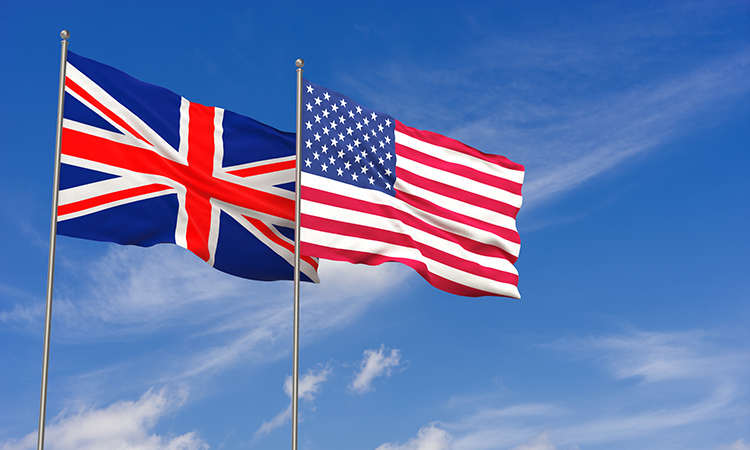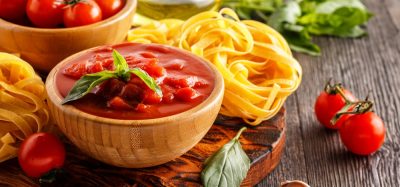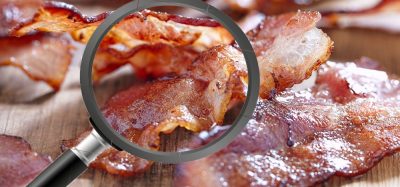How will the 2024 U.S. presidential election impact UK food security?
Posted: 29 July 2024 | Dr Clive Black | No comments yet
Here, Dr Clive Black considers how the outcome of the 2024 U.S. presidential election may impact food security across the UK, and offers his thoughts on the potential changes and challenges that the new Labour government may face.


By Dr Clive Black, Vice Chairman of Shore Capital Markets
The UK has gone through an important 2024 General Election where one government has been removed by the electorate, and now we await to see the capabilities of its replacement.
Few in the British food system will be sorry to see the back of the Conservatives. However, whilst a sense of relief on their passing is evident, elation on the new regime is limited, and so a country sceptical of its whole political and administrative class is awaiting the actions and not the words of Sir Kier Starmer’s new government. To be fair, the early tone, pace and priorities of Labour have been encouraging.
In a year of global elections, November 2024 brings the big one: the U.S. presidential election. For the Democrats, an elderly President Biden looked less equipped to run the country, never mind win an election, with every week that went by until his surprise resignation, with the new November candidate identified as Kamala Harris. Meanwhile, the Republicans are energised, galvanised, behind Donald Trump, seemingly boosted by the atrocity of surviving an assassination attempt. The odds four years ago of a Labour landslide in the UK and a strong Trumpian return would have been very generous indeed; now, it appears probable.
Trump has appointed a relatively young and inexperienced Vice President in JD Vance, for which it is not unreasonable to assume that he could be President of the U.S. in the not-too-distant future. A fellow of humble origins, Vance has forthright views that may further evolve global political relations and, with that, trade flows and economics. The 2020s have not been devoid of major negative externalities: notably, the Coronavrius pandemic; war in Ukraine; a radical economic experiment in Argentina; ongoing tension between China and Taiwan, amongst a range of pressure points in east Asia; and, from October 2023, violence in the Middle East, embracing Gaza, Israel, Iran and Lebanon.
The outcome of the U.S. presidential election, therefore, is going to condition many of the current global political processes and, if Trump’s first tenure and current rhetoric is to be seen through, noting his Vice President’s thoughts, too, considerable change could ensue across the piece, but most notably, perhaps, in Europe.
If Trump is, elected, therefore, what may this mean for UK food security, where a variety of recent events have been flash points that have been inflationary as well as challenging to supplies, e.g., cold temperatures in North Africa and Spain hitting British salad availability? A few, rather worrying, thoughts come to mind.
Trump is likely to boost the U.S. hydrocarbon sector, which could lead to an increase in oil supply that is likely to be a source of pressure on the global price, which would not be welcomed by other global oil suppliers, such as the Middle East and Russia. Hence, there is an argument to say that hydrocarbon prices may ease post-November 2024, which may raise the temperature around renewable energy costs which, through the transition to net zero, tend to be higher. For the UK food system weaned off Russian energy supplies, this may bring an energy cost tailwind of sorts, but also a dispute with a Labour government seeking to go the other way.
Whilst so, Trump’s views on Taiwan and Ukraine could really put the cat amongst the pigeons of global trade and costs. So, if:
- A) a green light is given to China to invade Taiwan without any U.S. military challenge, what would that do for other U.S. relations in the region – Australia, Japan, the Philippines and South Korea – never mind ongoing semi-conductor production?
- B) U.S. tariffs on Chinese and other nation’s goods, with likely retaliation, implies higher costs, changing demand and lower margins
- C) Appeasement in Ukraine, encouraging Kyiv to cede lost land, which will bring much discord to Europe – notably the European Union (EU) where the Baltics, Black Sea states and Poland feel military challenge should persist to Moscow, whilst Hungary thinks differently. What that means for the harmony of the EU is very worrying, indeed.
- D) Telling NATO members to step up on defence spending, which could pressurise indebted national budgets and/or open up European defence risk, especially adjacent to malevolent Russia?
Would food commodities be caught up in tariff wars? How would Ukraine and Russia’s cereals be traded if the U.S. backs away from supporting Ukraine and the EU/UK objects? What would a trade war between the U.S. and China mean for the rest of the world economy; apart from the higher chance of recession, could freight markets be in turmoil, too? How will a new UK government look at matters and will it think differently about food security, one of the five priorities – the other four being environment based – of the new Department for Environment, Food & Rural Affairs (DEFRA) Minister of State?
Such an outlook is clearly very worrying but, alas, not fanciful; in fact, far from it. In this respect, along with the seemingly greater uncertainty that a warming climate may be bringing, it underscores the need for the new Labour government to start thinking strategically and soon about how the UK feeds itself and where it securely and safely procures food to suffice not far short of 70 million people. And, in this respect, it shouts out for a domestic food policy where the UK produces more of its own produce in ways that rewards labour, looks after animals, delivers cleaner water and air, and contributes to net zero. Such a policy needs long-term thinking about soil, water, technology and labour.
All of the above suggest a greater risk of food inflation than deflation, noting scope for lower short-term oil and, perhaps, freight prices. It, therefore, also requires a UK government to help to articulate to British society that it needs to better understand where its food comes from and why that food will probably become more and not less expensive if it is to be secure and safe. Two and a half generations of Britons have not had to think about food availability; if anything, indulgence on cheap food has been a core cause of an obesity crisis. The evolving world causes a changed context where such perceived luxury is likely to change.
The likely election of Donald Trump requires us to see what he does, not what he says. However, reasonably material political, trade and economic change may be around the corner. Amongst many potential outcomes, food security is something that needs proper consideration to anticipate and mitigate challenge, so that the new UK government is not facing a material new headache.
About the author


Related topics
Related organisations
Department for Environment Food and Rural Affairs (Defra), UK Government









